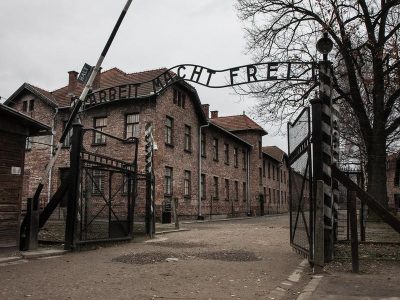Poland Defends Its National Dignity in the Face of Israeli & Ukrainian Intimidation

Poland passed an internationally “contentious” draft law banning the phrase “Polish death camps”, the Bandera ideology, and the denial of wartime Ukrainian fascist crimes.
Israel and Ukraine reacted with fury at the decision and harshly criticized Poland for what they each claimed for their own respective reasons was “historical revisionism”. Israeli Prime Minister Netanyahu forcefully condemned the bill and hinted that it amounts to “denying the Holocaust”, and a few people frenziedly speculated that it would outlaw any conversation about the complicity of some Polish citizens in that tragic event. Kiev, meanwhile, decried what it claimed was the painting of all Ukrainians as fascist sympathizers and protested Warsaw’s use of pre-war geographic terminology in reference to the genocide of Poles by Ukrainian so-called “nationalists” in Volhynia and Eastern Galicia.
Newly appointed Polish Prime Minister Mateusz Morawiecki responded to his Israeli counterpart over the weekend when he wrote on Twitter that “Jews, Poles, and all victims should be guardians of the memory of all who were murdered by German Nazis. Auschwitz-Birkenau is not a Polish name, and ‘Arbeit Macht Frei’ is not a Polish phrase”, one day before the two spoke to each other and agreed to enter into a dialogue on this issue. To be fair, historian Jan Grabowski has argued in his work that some Poles did in fact do terrible things to Jews, but claiming that these individuals committed these acts on behalf of the Polish Nation and collectively punishing the entire population with undeserved guilt is wrong and could be criminalized under the new legislation.
After all, approximately 6 million Poles were killed during the Nazi occupation, representing around 1/5 of its total prewar citizenry, which objectively makes the Polish Nation a victim of World War II, not an aggressor like the German one was.
Relatedly, Poles also suffered at the hands of the Hitler-aligned Bandera fascists who slaughtered around 100,000 civilians in the former eastern borderland of the Polish Second Republic and committed acts of terrorism against its people before the war, but Warsaw made the political decision to accept more than 1.5 million Ukrainian migrants over the past 4 years despite these individuals being predisposed to favoring the fascist Bandera ideology and its territorial claims against modern-day Poland. The Polish public is disgusted at the open embrace of fascism by Ukraine’s post-coup political elite and the glorification of Bandera in particular, and the state seems to have finally realized the long-term security implications of shortsightedly allowing so many Ukrainians into the country, some of whom might be Bandera “sleeper cell” sympathizers, hence why they want to belatedly outlaw his ideology.
Taken together, the country’s supposedly “controversial” draft legislation is designed to protect the Polish Nation from defamation through the weaponized inference that so-called “Polish death camps” whitewash Nazi atrocities and revise history in order to solely blame Poles, the same as the government wants to protect the security of the Polish people by finally making it illegal for any of the over 1.5 million Ukrainian migrants in the country to support Bandera’s fascist ideology and territorial claims. Israel and Ukraine are trying to discredit Poland’s EuroRealist government, but they’re actually inadvertently raising the appeal of the ruling Law & Justice Party among the many Poles inside the country who know better and see this as the unwarranted attacks against historical truth and national dignity that they truly are.
This article was originally published by Oriental Review.
Andrew Korybko is an American Moscow-based political analyst specializing in the relationship between the US strategy in Afro-Eurasia, China’s One Belt One Road global vision of New Silk Road connectivity, and Hybrid Warfare.

